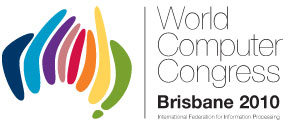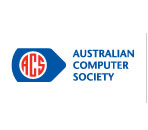Governance is an old word that goes back to Plato. The concept disappeared for a while, and was replaced by ideas like government, and government policy. Governance has now returned to the scene. Today, it focuses on issues like participative democracy and transparency. [White Paper, 2001]
The state is no longer a unique partner in regulating systems. Other actors take part at the local, regional, national, and international levels. New means of regulating scientific, technical, and other subsystems, and new ways of communicating, are possible among a variety of actors and subsystems.
Internet governance has been a highly debated issue throughout the early part of the first decade of the twenty-first century, particularly at the World Summit on Information Systems (WSIS), held in Geneva in 2003 and in Tunis 2005. The proposal of the Working Group on Internet Governance (WGIG) was adopted in Tunis. It put forward a multistakeholder approach to Internet governance. [WGIG, 2005] Stakeholder engagement has since become increasingly strong.
These debates raised other questions, particularly with regard to the role of business as a stakeholder. If the word “government” seems familiar, “civil society” and the “private sector” are perhaps less well defined. “Civil society” can be defined rather simply in the spirit of Habermas, the philosopher. Or, it may be subject to more extensive definitions that can open up discussions on precisely which kinds of organisations should be among the participants in civil society, and the extent to which business, business associations, and business systems are or should be involved. [Weerts, 2004; Civil Society Centre - LSE, 2007] Everyone knows that the private sector indicates primarily the business sector. Indeed, the business sector is often represented in official circles that make decisions about the Internet. Examples include the National and International Chamber of Commerce, the Davos Economic Forum, and the GBDe (Global Business dialogue on Electronic commerce, http://www.gbd-e.org/).
Ethics, and particularly the “Ethics of Computing”, are certainly fields worth deepening. IFIP’s SIG9.2.2 has been working in this domain for almost 20 years. The group has produced various books and monographs on the ethics of computing. Yet it recognises that current literature and guidelines could be enhanced and expanded.
The main goal of the HCC9 Track on Ethics and ICT Governance is to offer a forum to make this new field of the ethics of computing, and its research and practice. The Track will include papers on these and other subjects:
ICT governance: overviewing the research
- Concepts of governance: from theory to practice
- Ethics of computing: concepts and schools
- Ethics and ICT governance
- ICT ethics: governance models
- Research on ICT ethics governance: results of current research
Ethics and ICT governance: evaluating its practice
- Ethical governance: specific challenges
- Ethical governance: new and developing fields of applications (eAccessibility, eGovernment, eHealth, eSustainability)
- Gender and Diversity - an ethical issue
- Regulation as an ethical democratic issue of governance
- Evaluation of the effectiveness of current governance policies
- Application of suitable governance arrangements
- Evaluation of viability of suggested governance policies
- Ethical tools for ICT governance
ICT governance: assessing its institutions and technical components
- Internet governance and ICANN
- The Internet Governance Forum (its role, strengths, and limits).
- Challenges posed by the Internet of Things
- Cybersecurity for people and nations
- Technical norms: ipv6, and various protocols




